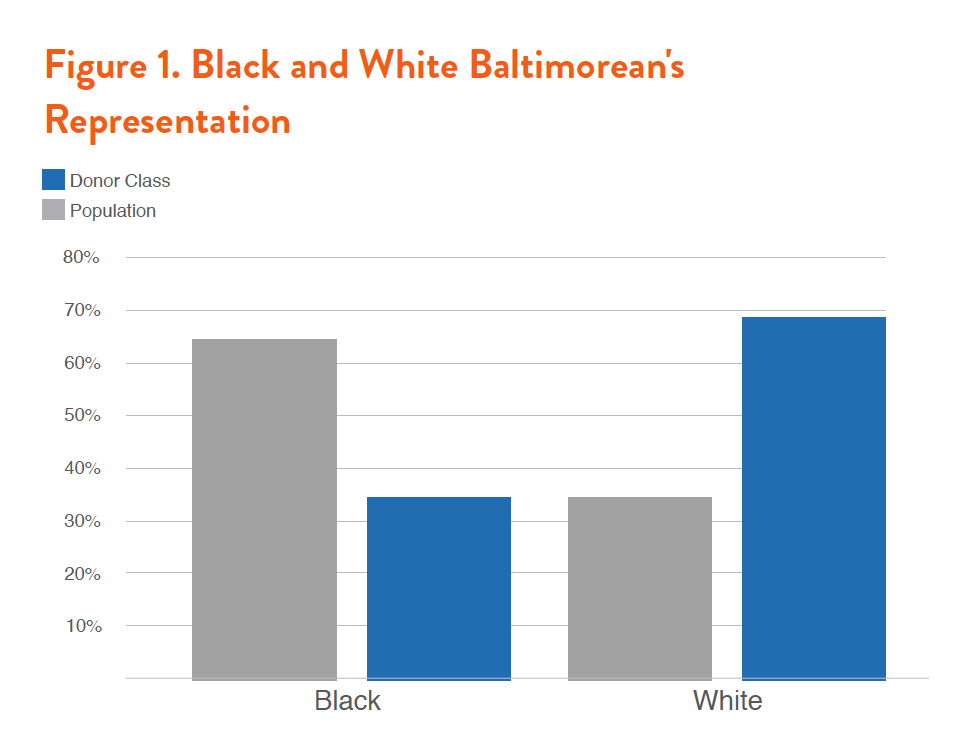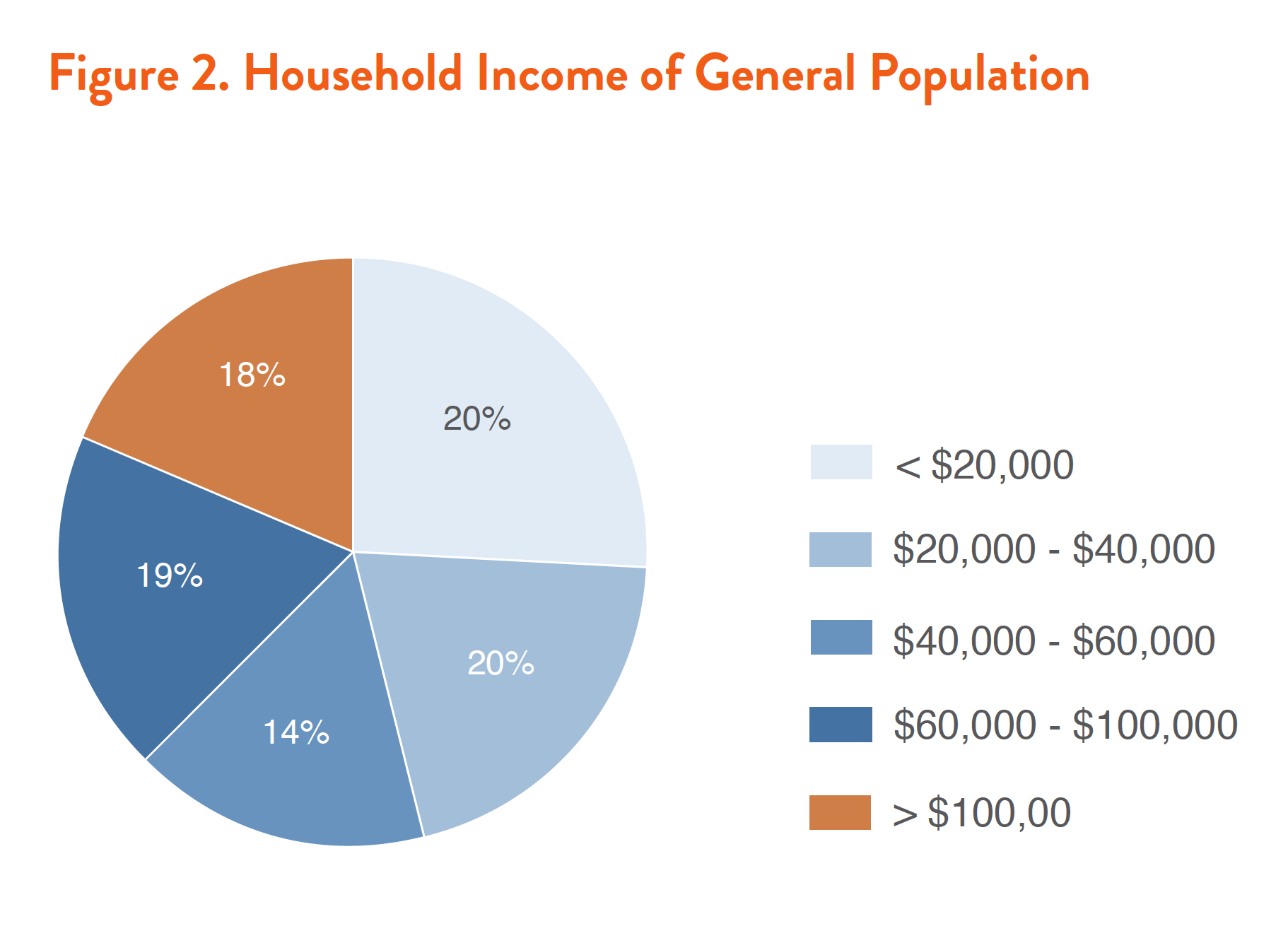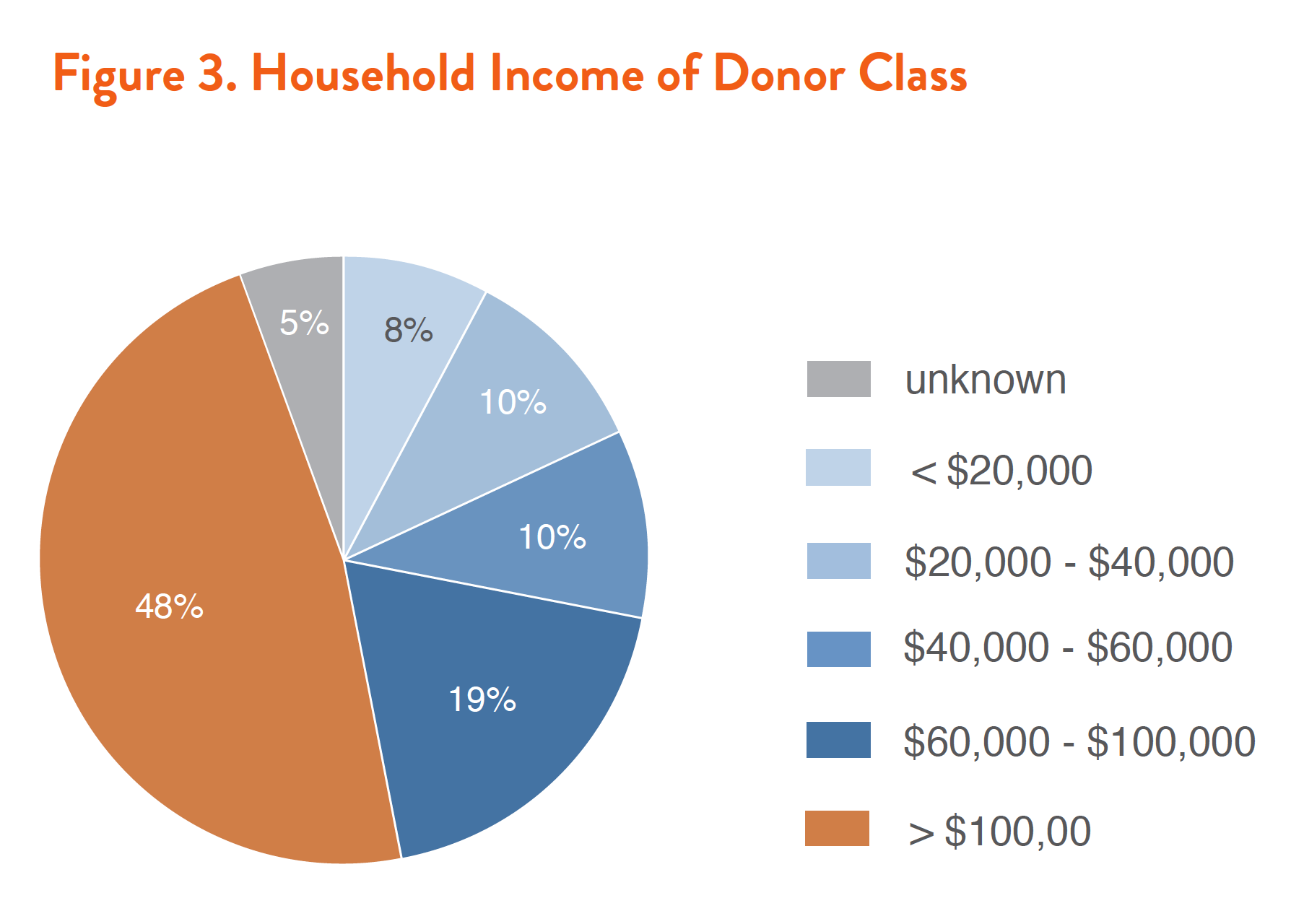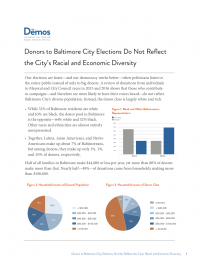Our elections are fairer—and our democracy works better—when politicians listen to the entire public instead of only to big donors. A review of donations from individuals to Mayoral and City Council races in 2015 and 2016 shows that those who contribute to campaigns—and therefore are more likely to have their voices heard—do not reflect Baltimore City’s diverse population. Instead, the donor class is largely white and rich.
- While 32% of Baltimore residents are white and 63% are black, the donor pool in Baltimore is the opposite—64% white and 32% black. Other races and ethnicities are almost entirely unrepresented.
- Together, Latinx, Asian Americans, and Native Americans make up about 7% of Baltimoreans, but among donors, they make up only 1%, 1%, and .03% of donors, respectively.

Half of all families in Baltimore make $44,000 or less per year, yet more than 80% of donors make more than that. Nearly half—48%—of donations came from households making more than $100,000.


This November, Baltimoreans have the chance to fix this distortion in our democracy through the Baltimore Fair Elections Fund. The Fair Elections Fund would enact small-donor public financing, allowing candidates to raise money from small-dollar donations and have those donations matched by the city. The Fair Elections Fund would increase the diversity of Baltimore’s donors, make elections more inclusive and accessible, and help ensure city government is more responsive to all Baltimoreans.
Notes
- Campaign contribution data come from the Maryland Campaign Reporting Information System. Data include individuals who contributed to Mayoral and City Council races in Baltimore between January 1, 2015 and December 31, 2016. They do not include contributions from entities like PACs, parties, unions, special interests, or independent expenditures. Demographic data for Baltimore come from the U.S. Census. Demographic data for the donor class are modeled.

